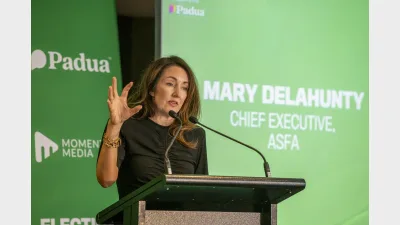Expect negative full-year returns for super: Chant West


Chant West estimates the median growth super fund is expected to post a loss of -1.3% for the full year 2019/20, the first time in 11 years.
The firm said this was a “good outcome” for the sector given the chaos caused by the COVID-19 pandemic and one of only four negative years in the past 28 years, with the other years being 2002/03, 2008/09 and 2009/10.
This year’s forecast returns were better than all the previous negative years with the worst being losses of 12.9% in 2009/10.
The worst performance this year was expected for all-growth super funds which held 96%-100% in growth assets and could be expected to lose 3.2% this year while the best were conservative funds which were the only sector expected to report a positive return. Conservative funds, with just 21% to 40% in growth assets, were expected to return 0.2% during the year.
Senior investment research manager at Chant West, Mano Mohankumar, said super funds had been helped by their diversification properties.
“Given all the medical and economic turmoil, funds have delivered a better result than many people would have expected. One key reason is that they maintain well-diversified portfolios invested across a wide range of growth and defensive asset sectors including, for many, a meaningful allocation to unlisted and alternative assets. That diversification works to cushion the impact during periods of share market weakness,” he said.
“At the same time, with a sizeable allocation of about 57% to listed shares and listed investments in infrastructure and property, funds are able to capture most of the upside when markets turn positive.
“This financial year’s result may be a disappointment to some members, but it’s important to remember that funds have had an unprecedented run for over 10 years, returning an impressive 8.2% per annum since the Global Financial Crisis low point in early 2009. That’s well ahead of the typical return objective which translates to about 5.5% per annum over the same period.”
Recommended for you
Aware Super has made a $1.6 billion investment in a 99-hectare industrial precinct in Melbourne’s North which, the fund clarified, also houses the nation’s first privately funded open-access intermodal freight terminal.
ASFA has affirmed its commitment to safeguarding Australia’s retirement savings as cyber activity becomes an increasing challenge for the financial services sector.
The shadow treasurer is not happy with the performance of some within the super sector, telling an event in Sydney on Thursday that some funds are obsessed with funds under management, above all else.
As the Australian financial landscape faces increasing scrutiny from regulators, superannuation fund leaders are doubling down on their support for private markets, arguing these investments are not just necessary but critical for long-term financial stability.














I just want an educated guesstimate please. Is superannuation in Australia likely to have negative returns over the next 1 or 2 years?
Kind regards,
Karl